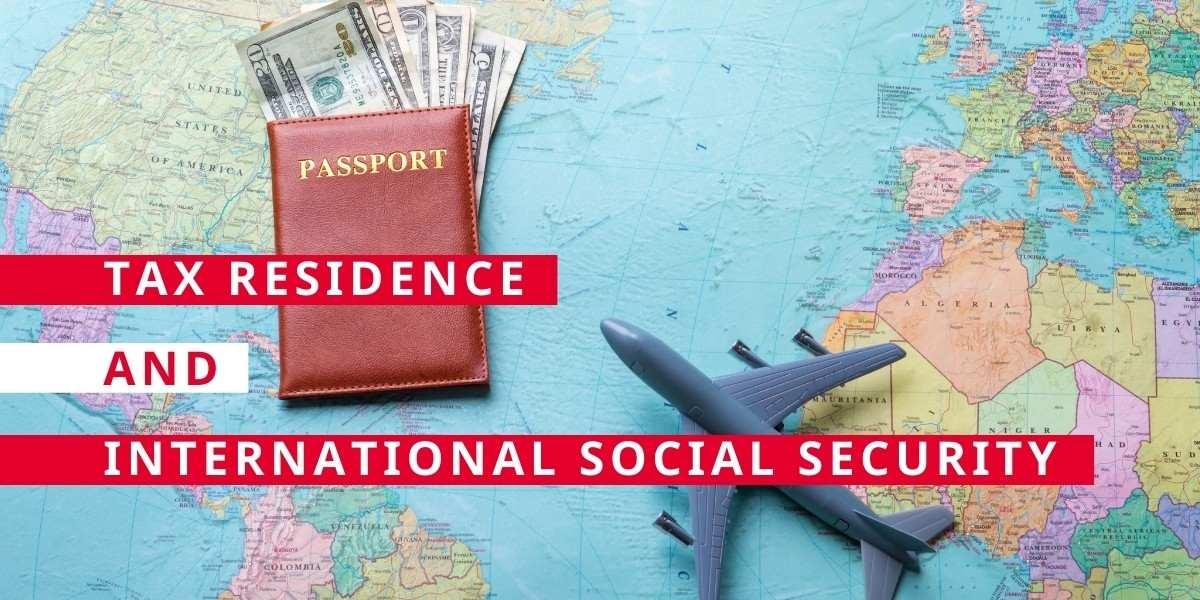
Posting outside of Spain: Social Security obligations
First of all, it would be a good idea to remind ourselves of what documents the company will have to use in order to communicate the posting of a worker from Spain who is going to move to provide services outside of Spain. We must differentiate between:
- Posted to the European Union.
- Posted to outside the European Union: countries with a bilateral Social Security agreement.
- Posted to outside the European Union: countries without a bilateral Social Security agreement.
If we consider Europe or countries that have a bilateral Social Security agreement, a TA300 form will need to be submitted, prior to the worker’s posting.
After submitting this form, Social Security will issue document A1:
- The worker must keep it during the course of their posting.
- It certifies that the worker maintains a link with Social Security in Spain.
If we are talking about workers posted within the European Union, and for a period of less than three months, the worker must also obtain a European Health Card, which will allow them to receive healthcare in the destination country. If, however, they are going to be posted for more than three months, the worker must ask for form S1.
On the other hand, when posted to countries where there is no bilateral agreement or which do not belong to the European Union, then:
- A letter of posting will need to be sent to the General Treasury of Social Security.
- The worker will need to be registered in the destination company.
What are the tax effects of posting a worker who leaves Spain to develop a work activity?
When a worker is posted outside Spain, for tax purposes they need to be correctly registered with the corresponding tax authority. Therefore, when transferring residence, the correct thing would be to:
-
Communicate that move in the country from which the posted worker leaves.
-
Communicate the arrival in the country to which the worker is posted.
In Spain, the communication of this change of tax domicile is through Form 030.
In turn, there are two things that our experts in international taxation recommend:
-
Request a certificate of tax residence for the posted years to be clear about the cut-off date and to have proof at the appropriate time.
-
Forms 147 and 247 are important: to indicate the worker’s new tax residence, and to be able to apply it to the payroll, so that the worker does not have to wait six months to regularize withholdings.
Practical questions on tax residency and international Social Security
A worker with tax residence in Spain moves to Portugal on July 1 requesting tax residence there. Should she send a TA300 of posting to Social Security?
In this example we find different situations: the tax situation and the Social Security situation.
- If the worker goes to work in Portugal and is posted by the company, she does have to submit the TA300 and obtain an A1, whether or not she obtains tax residence there.
- From the tax point of view, an analysis of whether she acquires tax residence would be needed and, in any case, a communication of change of address would need to be made.
As the worker has arrived on July 1, just before July 3, the cut-off date, if she stays until the end of the year in Portugal with the intention of being permanent and gets a residence certificate there, Spain will have to accept non-residence status. It must be taken into account that this situation would have implications in terms of remuneration.
Can the exemption in Article 7p) LIRPF be applied if the worker is not going to reside in Spain for 183 days? That is, is tax residence in Spain necessary to apply 7P?
Spanish tax residence is an essential condition for applying 7P.
With regards to the 183 days, it is important to note that a stay abroad for a time greater than 183 days does not automatically imply the loss of tax residence in Spain. If the change is not specifically requested, tax residence can be maintained in our territory. It is important to bear in mind that the criteria for determining tax residence are:
- That you stay in Spain for more than 183 days during the calendar year, including sporadic absences, unless you prove your tax residence in another country.
- That the main nucleus or base of activities or economic interests resides in Spain, directly or indirectly.
Note: It will be presumed, unless proven otherwise, that a taxpayer has their habitual residence in Spain when the spouse (not legally separated) and underage children who depend on them habitually reside in Spain.
Consequently, even when the worker remains outside of Spain for more than 183 days, a priori nothing prevents them from maintaining their tax residence in our country due to the application of one of the two previous additional criteria.
As such, although, for example, the worker is posted for a period of 11 months, it is possible to apply 7P if they maintain tax residence in Spain.
If there are several temporary postings throughout the year, in consecutive periods of time or not, do the days of posting in the different periods need to be added together for the calculation of the 183 days in the fiscal year for the purposes of taxation or residence? If so, at what point?
The calculation of the 183 days is an objective question that may entail the acquisition of Spanish tax residence status, after having spent this time in Spanish territory. However, posting abroad must be accompanied by a spirit of permanence in the destination country if we want the loss of Spanish tax residence to occur. A clear example of this are MotoGP riders.
They can spend 300 days a year outside Spain, but if they have their center of vital interests (family) and their center of economic interests here (most of their assets, for example), Spain will claim their tax residence. In addition, they will not be able, a priori, to prove their tax residence in another country, since they do not usually spend long periods in any particular one.
Therefore, if these trips throughout the year are with the intention of returning to Spain, exceeding 183 days abroad would not matter since they are considered sporadic absences and would not count towards losing Spanish tax residence.
However, if the trips are constant and to the same foreign country, this other country, by applying its own internal regulations, could claim the tax residence of the subject in question for itself. In this latter case, if Spain also considered the subject to be a Spanish tax resident, the conflict would have to be settled by applying the tie-breaking rules contained in the Agreement. In the absence of an Agreement, we may find there to be a case of double taxation.
Finally, if what we want is to prove tax residence in another country, we must have a certificate of tax residence from it or Spain may not accept this change of residence.
Are travel days included in the calculation of time spent in Spain?
The ruling of the TSJ of Madrid in a judgment on January 16, 2019 indicates the following: “To avoid an extensive interpretation regarding the intended tax benefit, expressly prohibited by Article 14 LGT, it is not possible to calculate, for the purposes of the exemption provided for in Article 7p) LIRPF, as days of travel to carry out work for a company or permanent establishment abroad, the days of outward or return travel, if it has not been possible to carry out a working day in them, during working hours, in the country of destination”.
In other words, whenever it is possible to prove that the days of travel allow the development of a working day during working hours in the destination country, these days may be taken into account for the calculation of the exemption calculation.
A company is governed by the UK fiscal year (April to March), and therefore, there are workers who have 7P payments from the UK that go with their fiscal year. What does it affect?
The fiscal year of the company has no effect on the personal income tax of its Spanish tax resident workers. The 7P is looked at month by month, although sometimes for practicality it is applied in the payroll of the month following the one to which it corresponds, and workers will apply the limit of 60,100 euros to their fiscal year—not to the company’s—which always coincides with the calendar year, except in cases of death. Therefore, it could be said that it does not affect anything.




